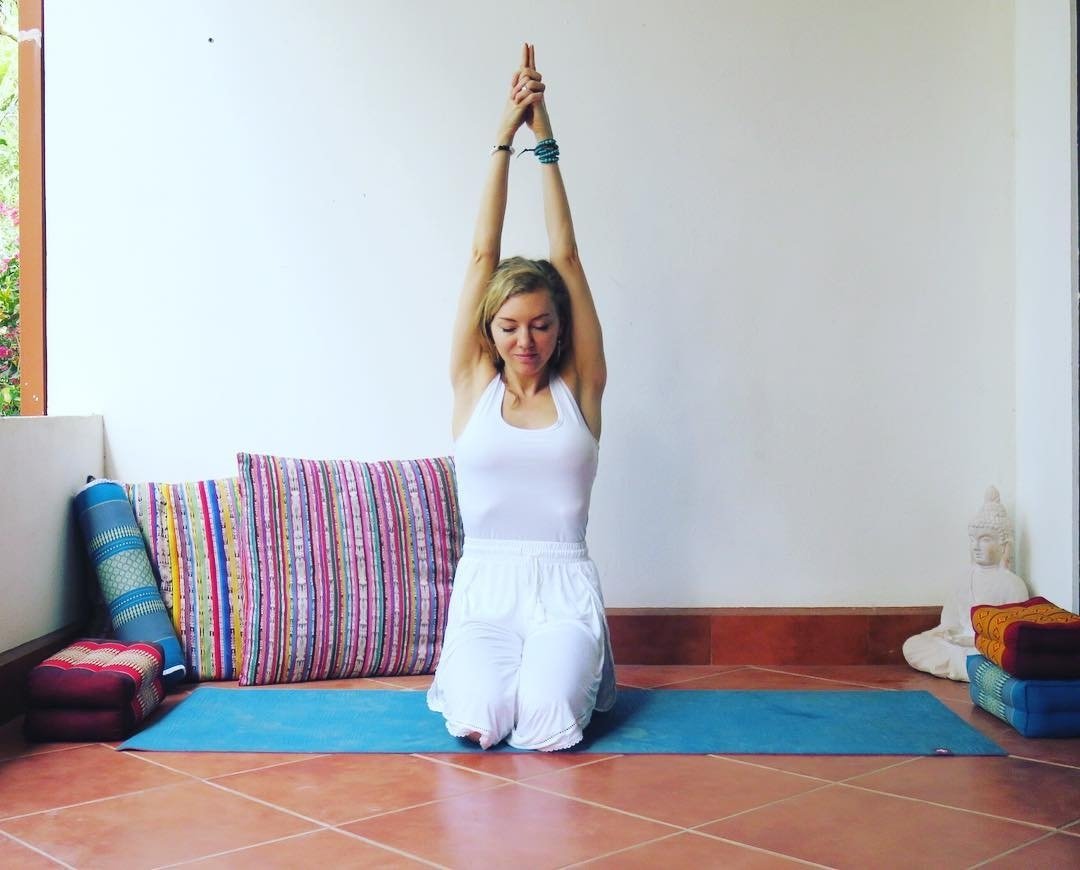In a world where the demands of work, relationships, and personal goals often feel relentless, it’s easy to be your harshest critic. Many of us are quick to judge ourselves when we make mistakes or fall short of our own expectations. However, there’s a growing recognition that cultivating self-compassion is not only vital for emotional well-being but also necessary for leading a more balanced, fulfilling life.
Self-Compassion through meditation involves treating yourself with the same kindness, care, and understanding that you would offer to a good friend. It’s about acknowledging your struggles, accepting your flaws, and giving yourself the space to grow without unnecessary self-criticism. One of the most effective ways to nurture self-compassion is through meditation. In this article, we’ll explore the importance of self-compassion, how meditation can foster it, and offer practical tips and techniques to get started on your own journey toward self-kindness.
What Is Self-Compassion?
Self-compassion is the ability to be kind to yourself in moments of pain, failure, or difficulty, rather than resorting to self-criticism or judgment. It involves three main elements, according to Dr. Kristin Neff, a leading researcher on self-compassion:
- Self-kindness: Treating yourself with warmth and understanding instead of harsh criticism.
- Common humanity: Recognizing that suffering and imperfection are part of being human, not signs of personal inadequacy.
- Mindfulness: Being aware of your thoughts and emotions without over-identifying with them or exaggerating them.
Self-compassion is distinct from self-esteem in that it’s not about feeling superior or better than others, but rather about embracing your own imperfections without shame or guilt. By practicing self-compassion, you can reduce the negative effects of stress, anxiety, and depression and develop a healthier relationship with yourself.
The Link Between Meditation and Self-Compassion:
Meditation is a powerful tool for cultivating self-compassion because it helps you develop mindfulness—the ability to observe your thoughts and feelings without judgment. Through meditation, you can create a mental space where you’re more aware of your emotional state, allowing you to approach difficult feelings with kindness and understanding, rather than self-criticism.
Several types of meditation are specifically designed to foster self-compassion. These practices encourage you to soften your inner dialogue and replace negative self-talk with affirming and supportive thoughts. Meditation also helps to rewire your brain, increasing activity in areas related to empathy, kindness, and emotional regulation.
In essence, meditation is not just a method for relaxation; it’s a way to develop a new way of relating to yourself, one that is rooted in patience, love, and understanding.
How Meditation Cultivates Self-Compassion:
Quieting the Inner Critic:
One of the most common obstacles to self-compassion is the inner critic, that voice in your head that judges, compares, and demeans you when you make mistakes. Meditation allows you to step back from this voice, notice it without attachment, and gradually replace it with a more nurturing, supportive internal dialogue.
Mindful Awareness:
Through mindfulness meditation, you can become more aware of your emotions and thoughts in the present moment. Instead of automatically reacting with self-judgment when you feel frustrated or disappointed, mindfulness allows you to observe your feelings without identifying with them. This makes it easier to approach these emotions with a sense of acceptance and compassion, rather than denial or self-criticism.
Cultivating Positive Emotions:
Loving-kindness meditation (also called “Metta” meditation) is a powerful practice for nurturing self-compassion. It involves silently repeating phrases of goodwill toward yourself and others, such as “May I be happy,” “May I be healthy,” and “May I live with ease.” Over time, this practice can help you generate feelings of warmth, love, and acceptance toward yourself, reducing negative emotions like shame and self-doubt.
Self-Soothing:
Meditation fosters self-soothing abilities by training you to respond to discomfort and pain with care and attention. Instead of automatically pushing away difficult emotions or pretending they don’t exist, meditation encourages you to embrace them with kindness. This means acknowledging your vulnerabilities and offering yourself comfort and understanding, just as you would to a friend in need.
Meditation Techniques for Cultivating Self-Compassion:
Several meditation practices can specifically help you cultivate self-compassion. Below are some of the most effective techniques to incorporate into your routine.
1. Loving-Kindness Meditation (Metta Meditation):

Loving-kindness meditation is a practice that involves directing positive, compassionate thoughts toward yourself and others. It’s an excellent way to nurture feelings of warmth, love, and acceptance.
Loving-kindness meditation fosters self-compassion by helping you direct loving energy toward yourself. It creates a shift from self-criticism to self-care and helps develop empathy and understanding.
After a few minutes, you can gradually expand your focus to others—loved ones, acquaintances, and even those with whom you have conflicts—wishing them the same feelings of peace and happiness.
How to Practice:
- Find a comfortable seated position and close your eyes.
- Begin by taking a few deep breaths to center yourself.
- Start by silently repeating phrases such as:
- “May I be happy.”
- “May I be healthy.”
- “May I be safe.”
- “May I live with ease.”
- Allow yourself to truly feel these words as you repeat them, letting them fill you with warmth and care.
2. Self-Compassion Break Meditation:

This technique, popularized by Dr. Kristin Neff, involves taking a brief “self-compassion break” in moments of stress or emotional turmoil. It’s a simple but powerful practice to remind yourself that you’re not alone in your struggles and that you deserve kindness during difficult times.
This meditation offers you the space to validate your pain without judgment and fosters a sense of connection with the common human experience of suffering. It also encourages you to practice self-kindness in the face of hardship, rather than spiraling into self-blame or negativity.
How to Practice:
- When you’re feeling overwhelmed or stressed, stop what you’re doing and take a few deep breaths.
- Acknowledge your difficult feelings by saying to yourself: “This is a moment of suffering.”
- Remind yourself that suffering is part of being human: “Suffering is part of life. I am not alone.”
- Offer yourself words of compassion: “May I be kind to myself. May I accept myself as I am.”
3. Body Scan Meditation with Self-Compassion Focus:

A body scan meditation involves mentally scanning each part of your body to check for tension or discomfort. By incorporating self-compassion into this practice, you can develop a deeper sense of kindness toward your physical being, acknowledging both its strengths and vulnerabilities.
By combining mindfulness with self-compassion, you foster an attitude of acceptance and care for your body, which is often overlooked in times of stress or illness. This practice also helps you stay connected to your body and reduces the tendency to criticize or ignore physical discomfort.
How to Practice:
- Lie down or sit comfortably, and close your eyes.
- Take a few deep breaths, bringing your attention to your body.
- Start from the top of your head and slowly move down, focusing on each body part. As you scan each area, take note of any sensations you feel, whether it’s tension, warmth, or relaxation.
- As you encounter discomfort or tension, instead of criticizing or wishing it away, offer yourself compassionate thoughts: “It’s okay to feel this way. I am here for you.”
- Continue this process all the way down to your toes.
4. Guided Self-Compassion Meditation:

Many meditation apps and online platforms offer guided meditations specifically focused on self-compassion. These guided sessions provide structure and support, making it easier to immerse yourself in the practice. If you find it difficult to meditate on your own, a guided meditation might be the perfect way to get started.
Guided meditations can provide a sense of support and direction, especially if you are new to self-compassion meditation. The soothing voice of the guide can help deepen your experience of self-care and make it easier to let go of judgment and embrace compassion.
How to Practice:
- Choose a self-compassion guided meditation on a trusted platform (e.g., Insight Timer, Calm, Headspace).
- Find a quiet place to sit or lie down comfortably.
- Follow along with the meditation, allowing the guide’s soothing voice to lead you through a series of compassionate prompts and reflections.
- Stay focused on your breath, your body, and the words of kindness offered in the meditation.
Benefits of Self-Compassion Through Meditation
Practicing self-compassion through meditation can have profound effects on your mental, emotional, and physical health:
- Reduced Stress and Anxiety: Self-compassion helps lower cortisol levels, reducing the physiological effects of stress.
- Improved Emotional Regulation: By treating yourself with kindness, you develop more resilience to emotional ups and downs.
- Increased Self-Worth: Self-compassion helps you develop a positive self-image and reduces negative self-talk.
- Better Mental Health: Studies show that self-compassion is linked to lower rates of depression and anxiety.
- Enhanced Relationships: When you treat yourself with compassion, you are more likely to extend that compassion to others, improving your relationships.





